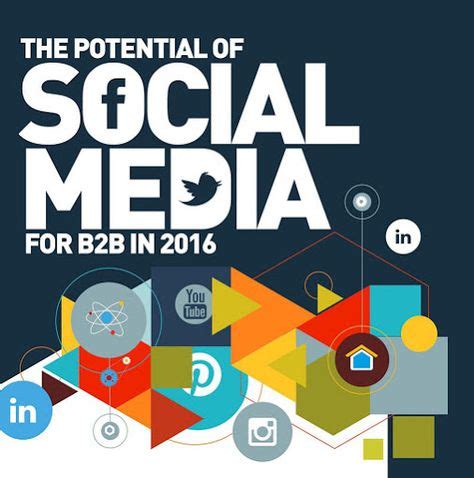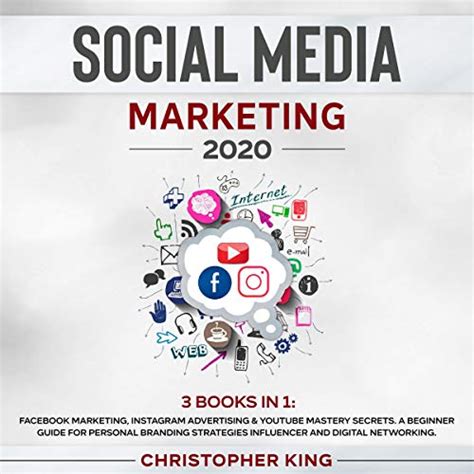Mark Zuckerberg’s influence on social media marketing has reshaped the digital landscape, offering valuable insights for modern brands. As the founder of Facebook, he transformed how businesses connect with consumers, paving the way for data-driven advertising, personalized content, and global user engagement. This article explores the key strategies behind Zuckerberg’s success, from his visionary leadership to the creation of a thriving influencer ecosystem. It also delves into the innovative platforms that expanded Facebook’s reach, the importance of community building, and how navigating controversy shaped his public relations approach. Finally, we’ll look at the future trends he’s spearheading, particularly the integration of the metaverse in marketing strategies.
Come join maseblog.com in exploring this topic extensively.
1. Visionary Leadership in Social Media
Mark Zuckerberg’s visionary leadership in social media stemmed from his early recognition of the potential of online connections, well before social platforms became ubiquitous. By prioritizing user experience and creating a space for individuals to connect, share, and communicate, Zuckerberg established the foundation for a new era of social interaction. His leadership transcended mere platform creation; it involved constant evolution to meet evolving user needs. From Facebook’s humble origins in a Harvard dorm room to its global dominance, Zuckerberg’s foresight has been instrumental in shaping social media’s role in marketing. Recognizing the power of personalized experiences, he harnessed data to provide brands with unparalleled opportunities for targeted audience engagement. This visionary approach not only propelled Facebook into a marketing powerhouse but also revolutionized the way brands approach digital strategy. Zuckerberg’s unwavering commitment to innovation—evident in acquisitions like Instagram and advancements in AI—ensures that social media remains a central pillar of modern marketing strategies.

2. Data-Driven Advertising
Mark Zuckerberg’s profound impact on social media marketing is evident in his creation of data-driven advertising. Recognizing the potential of user data, Zuckerberg designed Facebook’s advertising platform to provide businesses with highly targeted marketing solutions. Through sophisticated algorithms and comprehensive data collection, Facebook empowers brands to reach specific audiences based on demographics, interests, and online activities. This innovative approach transformed online advertising, enabling businesses of all sizes to tailor their campaigns with unmatched precision.
Facebook’s advertising platform, now encompassing its acquisitions like Instagram and WhatsApp, offers comprehensive user engagement insights. This empowers brands to analyze their marketing campaigns’ effectiveness. This model benefits not only advertisers but also users, delivering more relevant content and enhancing their experience. By integrating machine learning and AI into the advertising system, Zuckerberg has enabled ads to adapt dynamically to user preferences. This, in turn, increases user engagement and conversion rates.
Zuckerberg’s data-driven strategy revolutionized the digital marketing landscape, turning social media from a communication tool into a lucrative advertising platform. By leveraging vast amounts of data, businesses could optimize their outreach with highly targeted campaigns. This shift to data-centric advertising, a cornerstone of any brand’s online marketing strategy today, underscores Zuckerberg’s visionary approach to monetizing social media.

3. Content Monetization and Influencer Ecosystem
Mark Zuckerberg envisioned social media as more than just a connection tool; he saw its potential for content monetization. By equipping brands, creators, and influencers with revenue-generating tools, he evolved Facebook into a robust business ecosystem. Features like Facebook Ads, Brand Collabs Manager, and Instagram’s shopping capabilities empowered content creators to monetize their work directly, ushering in new business models for the digital era.
Zuckerberg’s strategy centered around the rise of influencers. He cultivated an environment where creators with vast followings could partner with brands to tap into highly engaged audiences. This influencer ecosystem empowered businesses to promote products authentically, leveraging trusted voices to connect with their target markets. As social media platforms matured, monetization options diversified, allowing creators to generate revenue through sponsored content, affiliate marketing, and direct fan support. Zuckerberg’s approach to content monetization has created a sustainable, scalable framework for both brands and influencers to flourish in the digital realm.

4. User Engagement and Community Building
Mark Zuckerberg’s focus on user engagement and community building has been the driving force behind Facebook’s success. Right from the start, Facebook was designed to cultivate connections—be it among friends, family, or individuals united by shared interests. Zuckerberg recognized the importance of interaction in social media, and he prioritized features that encouraged active user participation, such as likes, comments, shares, and reactions.
Facebook Groups and Pages, introduced to the platform, fostered the creation and participation in communities centered around shared interests, boosting user engagement. This empowered brands to cultivate loyal communities where members could interact not only with the brand itself, but also with one another, forging stronger connections and deeper brand loyalty.
This emphasis on community extended to the business world, enabling companies to establish their own spaces for more personal and interactive engagement with customers. Facebook’s algorithms, designed to highlight meaningful connections, ensured that the most engaging content reached a broader audience.
Zuckerberg’s vision of fostering genuine communities paved the way for personalized marketing. This allowed brands to directly engage with specific target audiences. This user-centric philosophy, which prioritizes authentic connections and value-driven relationships, remains a fundamental principle in social media marketing.
5. Platform Innovation and Expansion
Mark Zuckerberg’s unwavering dedication to platform innovation and growth has been instrumental in Facebook’s enduring dominance of the social media sphere. From its initial focus on connecting college students, Facebook rapidly transformed into a global platform, introducing a multitude of new features to maintain user engagement and brand investment. Zuckerberg’s strategic acquisition strategy, most prominently the purchases of Instagram and WhatsApp, showcased his prescience in diversifying Facebook’s offerings. Integrating these platforms expanded Facebook’s reach and introduced new tools for content sharing, direct messaging, and real-time communication, catering to a broader audience and diverse business needs.
Beyond acquiring companies, Zuckerberg also actively fostered innovation within Facebook. The company’s launch of live video, Stories, and Marketplace demonstrated its agility in adapting to emerging trends and maintaining a competitive edge. These innovations offered new avenues for brands to connect with consumers, enabling interactive live streams, temporary content, and e-commerce solutions.
Furthermore, Zuckerberg’s acquisition of Oculus, a virtual reality company, demonstrates his desire to shape the future of social interaction. As the digital world continues to transform, his dedication to integrating new technologies and platforms positions Facebook as a leader in social media innovation. This commitment provides marketers with advanced tools to engage their audiences in novel and effective ways.
6. Navigating Controversy and Public Relations
Mark Zuckerberg’s leadership has been defined by his ability to navigate controversy and manage public relations. Facebook has encountered numerous challenges throughout its existence, including data privacy concerns and ongoing debates about content moderation. Zuckerberg’s approach to these controversies has been characterized by a blend of transparency and strategic communication.
Faced with public outcry over data breaches and misuse, Zuckerberg pledged to strengthen privacy safeguards and increase transparency about data practices. The introduction of new privacy policies and user controls was a direct response to these concerns, aimed at rebuilding trust with users and regulators.
Mark Zuckerberg has been criticized for Facebook’s handling of misinformation and harmful content. In response, Facebook has invested heavily in advanced technologies and human review systems to improve content moderation. While Facebook continues to face scrutiny, Zuckerberg’s commitment to adapting policies and enhancing communication has been crucial in navigating these challenging times. This approach has been essential in maintaining user trust and protecting platform integrity.
7. Global Reach and Market Adaptation
Mark Zuckerberg’s strategic vision has transformed Facebook into a global powerhouse, boasting over 2.8 billion users worldwide. His approach to global expansion involved tailoring the platform to diverse markets and localizing features to cater to regional needs. Recognizing cultural nuances and understanding regulatory environments, Zuckerberg ensured that Facebook could seamlessly operate and resonate with users from all walks of life.
Facebook’s adaptability is clear in its multilingual support, localized advertising options, and compliance with regional regulations. This is evident in its adherence to strong data protection laws, such as the General Data Protection Regulation (GDPR) in the European Union, where Facebook has implemented robust privacy measures. Additionally, the platform tailors its content and advertising strategies to reflect diverse consumer behaviors and preferences worldwide.
Mark Zuckerberg’s commitment to adapting to different markets included cultivating partnerships with local businesses and governments. This strategy helped to seamlessly integrate Facebook into regional economies. This global approach not only grew Facebook’s user base but also established it as a key player in the international digital marketing arena. As a result, brands could connect with a worldwide audience efficiently.
8. Future Trends and the Metaverse
Mark Zuckerberg’s forward-thinking approach has positioned Facebook at the forefront of emerging technologies, with a significant focus on the Metaverse. This ambitious vision aims to create a fully immersive digital environment where users can interact, work, and play in a virtual space. The Metaverse represents the next frontier in social media, offering new opportunities for brands to engage with consumers in innovative ways.
Zuckerberg’s investment in virtual reality (VR) through Oculus and the development of augmented reality (AR) technologies are central to this vision. By integrating these technologies, Facebook seeks to build a more interactive and engaging digital experience that transcends traditional social media interactions. The Metaverse promises to offer brands novel ways to create experiential marketing campaigns, host virtual events, and develop interactive content that captures users’ attention in immersive environments.
Moreover, Zuckerberg envisions the Metaverse as a platform for enhanced social connections, where users can collaborate in real-time, explore virtual spaces, and experience digital content in unprecedented ways. As the Metaverse evolves, it is set to redefine digital marketing, offering a transformative landscape for brands to innovate and connect with audiences on a deeper level.
Mark Zuckerberg’s impact on social media marketing has been profound, from pioneering data-driven advertising to shaping the future with the Metaverse. His visionary leadership and innovative strategies have transformed how brands engage with audiences, setting new standards in digital marketing. As social media continues to
maseblog.com
